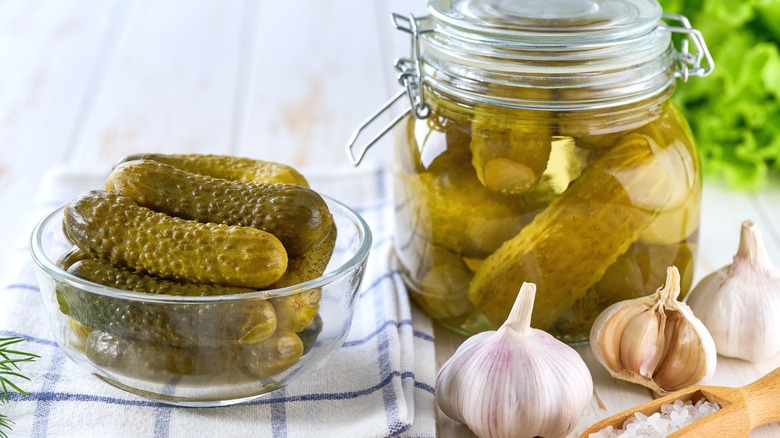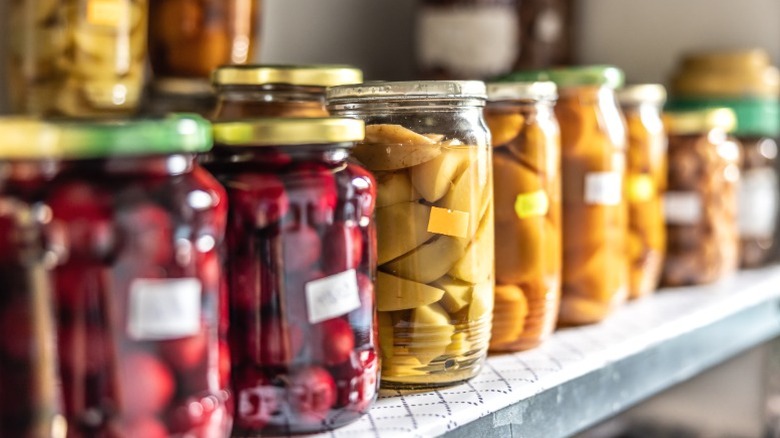The Best Salt To Use For Pickles If You Don't Have Pickling Salt
We may receive a commission on purchases made from links.
If you've never made your own pickles before, you might be surprised that there's a special kind of salt expressly used for the purpose, whether you're brining cucumbers or beets, or pickling surprisingly tangy seafood like shrimp. Surely one kind of salt works just as well as any other, right? Not so! Pickling salt, which is free of the iodine and anti-caking agents found in table salt, is an important ingredient if you want your brine to taste salty without being compromised by any other chemicals. But if you don't have any on hand, what do you do? We asked Dr. Bryan Quoc Le, founder of Mendocino Food Consulting, who told us that other kinds of salt will work just fine — so long as they don't have those chemicals.
"Anything with iodine, calcium silicate, or anti-caking agents can make the brine cloudy or introduce off flavors, which you don't want when you're relying on the brine to keep flavor consistent and the microbes in check," Dr. Le said. That means you probably don't want to take your shaker off the dining room table and pour that salt into that cute Mason jar you're using to brine your pickles. Whether or not you can detect a slight bitter aftertaste in iodized salt, pickling is enough of a tedious process that you don't want to leave anything to chance. Dr. Le recommended using food industry favorite, Diamond Crystal Kosher Salt, adding, "It's additive-free, dissolves evenly, and the larger crystal structure makes it easier to handle in recipes."
Why you should salt your brine
If, for some reason, you don't have any salt in your pantry, we're afraid we don't have any neat substitutes for you. (We also might suggest assembling the right pantry staples, but one thing at a time.) Salt is kind of non-negotiable for cooking in general, and that's especially true for fermentation pickling, as Dr. Bryan Quoc Le told us. "Salt lowers water activity, suppresses spoilage organisms, encourages the right lactic acid bacteria to grow, and helps the vegetables stay crisp," he said. Granted, the kind of pickling you'll be doing in your kitchen isn't necessarily an act of extended food preservation, but salt is still important for flavor. "Skip it, and you'll end up with dull, flat-tasting vegetables that soften too quickly," Dr. Le warned.
As for what else to include in your brine, Dr. Le offered a few suggestions, most of which improve both taste and preservation capability: vinegar and sugar, for instance, as well as "spices like mustard seed, dill, garlic, peppercorns, [and] chili flakes." You can obviously find your own recipes and go from there, but according to Dr. Le, "These pieces together create a product that's not only safe, but has the flavor, aroma, and crunch people expect from a good pickle." Now all you have to do is pick out the best cucumber for pickling and get to work.

